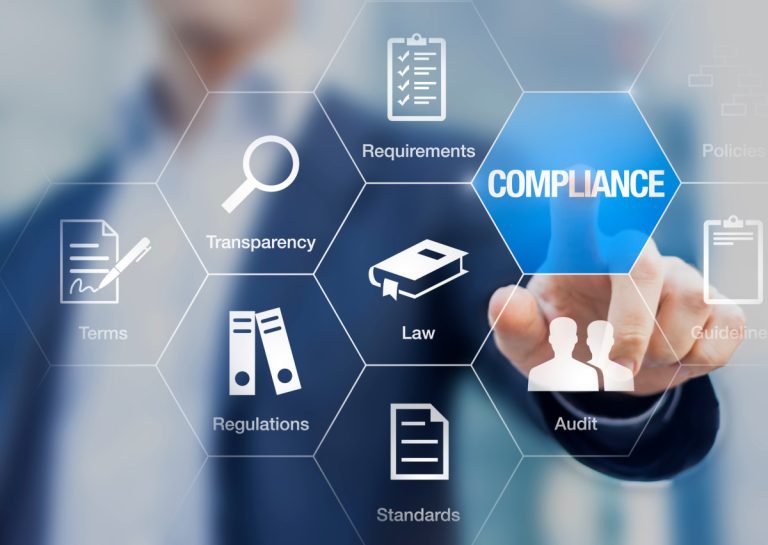Navigating business regulations and compliance poses a complex and intimidating challenge for both entrepreneurs and seasoned business owners. Grasping and complying with these regulations is imperative to sidestep legal pitfalls, financial penalties, and reputational harm. This comprehensive guide aims to elucidate the significance of compliance, pinpoint key regulations, devise effective compliance strategies, stay abreast of changes, and harness professional assistance. Throughout, we’ll incorporate insights from Shlomo Rechnitz to enrich the discussion on navigating business regulations and compliance effectively.
Understanding the Importance of Compliance
Compliance with business regulations is crucial for maintaining the legal and ethical standards of your company. It involves adhering to laws, guidelines, and specifications relevant to your industry, which can range from environmental standards to labor laws and financial reporting requirements. Non-compliance can result in severe consequences, including fines, lawsuits, and even the closure of your business.
Moreover, compliance is not just about avoiding penalties; it’s also about building a trustworthy and reputable brand. Customers, investors, and partners are more likely to engage with businesses that demonstrate a commitment to ethical practices and legal compliance. This trust can lead to increased customer loyalty, better business opportunities, and a competitive edge in the market.
Identifying Key Business Regulations
To effectively navigate business regulations, you need to identify the key regulations that apply to your specific industry and business operations. These regulations can be local, state, national, or international, depending on the scope of your business. Common areas of regulation include health and safety standards, employment laws, environmental regulations, data protection, and financial reporting.
Each industry has its unique set of regulations. For example, the healthcare industry must comply with strict patient privacy laws like HIPAA in the United States, while the financial sector must adhere to regulations like the Dodd-Frank Act and Sarbanes-Oxley Act. Identifying the relevant regulations requires thorough research and understanding of the legal landscape in which your business operates.
Developing Effective Compliance Strategies
Once you have identified the relevant regulations, the next step is to develop effective compliance strategies. This involves creating a comprehensive compliance program that outlines the policies, procedures, and practices your business will follow to meet regulatory requirements. A robust compliance program includes regular training for employees, clear documentation of compliance efforts, and a system for monitoring and reporting compliance activities.
Effective compliance strategies also involve integrating compliance into your business culture. This means promoting a mindset of ethical behavior and accountability throughout your organization. By fostering a culture of compliance, you ensure that all employees understand the importance of adhering to regulations and feel responsible for maintaining the company’s legal and ethical standards.
Staying Updated on Regulatory Changes
Regulatory landscapes are constantly evolving, with new laws and amendments being introduced regularly. Staying updated on these changes is critical for maintaining compliance and avoiding potential legal issues. Regularly reviewing and updating your compliance program to reflect new regulations ensures that your business remains compliant.
To stay informed about regulatory changes, consider subscribing to industry newsletters, joining professional associations, and attending relevant conferences and seminars. Additionally, leveraging technology, such as compliance management software, can help you track regulatory updates and automate compliance processes, making it easier to stay current with the latest requirements.
Leveraging Professional Assistance
Navigating the complex world of business regulations can be challenging, and seeking professional assistance can provide significant benefits. Hiring compliance experts, such as legal advisors, consultants, or compliance officers, can help you interpret regulations, develop compliance strategies, and implement effective compliance programs.
Professional assistance is particularly valuable for businesses operating in highly regulated industries or those expanding into new markets with unfamiliar regulations. These experts bring specialized knowledge and experience, ensuring that your business meets all regulatory requirements and avoids potential pitfalls. Investing in professional assistance can ultimately save time, reduce risks, and provide peace of mind, allowing you to focus on growing your business.
Implementing Robust Internal Controls
Effective internal controls are vital for ensuring compliance with business regulations. These controls encompass policies, procedures, and mechanisms designed to safeguard assets, ensure accuracy in financial reporting, and promote operational efficiency. Internal controls also play a critical role in preventing fraud and detecting errors before they escalate into significant issues.
Implementing robust internal controls involves establishing clear protocols for financial transactions, regularly reviewing and reconciling accounts, and conducting internal audits. Additionally, fostering a culture of transparency and accountability within the organization encourages employees to adhere to established controls and report any irregularities or concerns promptly. By prioritizing strong internal controls, businesses can enhance their compliance efforts and mitigate risks effectively.
Training and Educating Employees
Employee training and education are essential components of a successful compliance program. Employees must understand the regulations that impact their roles and responsibilities to ensure that they perform their duties in accordance with legal requirements. Regular training sessions help keep employees informed about changes in regulations and reinforce the importance of compliance.
Training programs should be tailored to the specific needs of different departments and roles within the organization. For example, financial staff may need training on accounting standards and anti-fraud measures, while customer service teams may require education on data privacy laws and customer protection regulations. Providing ongoing training and creating an environment where employees feel comfortable asking questions and seeking guidance can significantly enhance your company’s compliance efforts.
Conducting Regular Compliance Audits
Regular compliance audits are crucial for assessing the effectiveness of your compliance program and identifying areas for improvement. These audits involve systematically reviewing your business processes, policies, and practices to ensure they align with regulatory requirements. Conducting audits helps detect any compliance gaps or weaknesses, allowing you to address them proactively.
Internal audits can be performed by your own compliance team or by external auditors for an unbiased assessment. Audits should be conducted periodically, especially after significant regulatory changes or organizational shifts. The findings from compliance audits provide valuable insights that inform your compliance strategies and help maintain ongoing adherence to regulations.
Building a Culture of Compliance and Ethics
Creating a culture of compliance and ethics within your organization is fundamental for sustained adherence to regulations. This culture starts with leadership commitment and cascades throughout the company. When business leaders prioritize compliance and model ethical behavior, employees are more likely to follow suit.
Promoting a culture of compliance involves clear communication about the importance of regulatory adherence, recognizing and rewarding ethical behavior, and providing mechanisms for reporting unethical conduct without fear of retaliation. By embedding compliance into your organizational values and everyday practices, you build a resilient foundation that supports long-term success and mitigates the risk of non-compliance.
Utilizing Technology for Compliance Management
Leveraging technology can significantly enhance your compliance management efforts. Compliance management software and tools streamline processes, automate routine tasks, and provide real-time monitoring of compliance activities. These technologies help ensure that your compliance program remains efficient, accurate, and up-to-date.
Compliance management systems offer features such as automated alerts for regulatory changes, centralized documentation storage, and reporting capabilities. These tools facilitate efficient communication and collaboration among compliance teams, reducing the risk of oversight or error. Investing in technology not only improves compliance but also frees up valuable resources, allowing your team to focus on strategic initiatives.
Understanding Industry-Specific Regulations
Different industries are subject to specific regulations that address unique risks and challenges. Understanding the regulatory landscape of your industry is essential for effective compliance. Industry-specific regulations may include safety standards, environmental requirements, data protection laws, and more.
To navigate these regulations, businesses should conduct thorough research and seek guidance from industry associations, regulatory agencies, and legal experts. Staying informed about industry trends and emerging regulatory issues ensures that your compliance program remains relevant and comprehensive. By tailoring your compliance strategies to industry-specific regulations, you mitigate risks and enhance your competitive advantage.
Collaborating with Regulatory Authorities
Building a positive relationship with regulatory authorities can be beneficial for your compliance efforts. Engaging with these authorities proactively demonstrates your commitment to regulatory adherence and fosters open communication. Regulatory agencies can provide valuable guidance, resources, and support to help businesses navigate complex regulations.
Regularly participating in industry forums, workshops, and consultations organized by regulatory bodies helps you stay informed about regulatory developments and expectations. Collaborating with regulatory authorities also allows you to provide feedback on proposed regulations and contribute to shaping policies that impact your industry. By maintaining a collaborative approach, you build credibility and trust with regulators, which can be advantageous during compliance assessments or audits.





